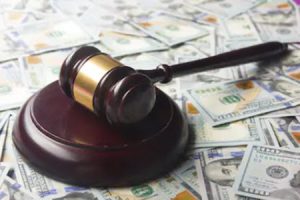Does Bankruptcy Affect My Social Security Benefits?

As the calendar inches toward 2022, Social Security recipients are looking forward to one of the largest COLA increases ever. A 5 percent increase is hardly a fortune, but it is a noticeable increase, especially for families who struggle to make ends meet. This one-time bump takes place against a disturbing long-term trend. For example, pension benefits have decreased significantly in recent years. Older adults can no longer count on these income security programs.
So, it’s more important than ever to protect Social Security benefits as much as possible. Ordinarily, consumer bankruptcy does not protect income. Therefore, many people are understandably concerned about the impact a filing might have on these benefits. Social Security payments are assets under the Bankruptcy Code. A Chicago bankruptcy lawyer uses a voluntary petition to protect these assets which otherwise are at risk.
Benefits of Bankruptcy
A voluntary petition instantly protects your assets from adverse creditor actions, such as repossession, foreclosure, wage garnishment, and creditor lawsuits. The relevant portion of the Bankruptcy Code applies whether or not the debt itself is dischargeable. More on that below.
In most cases, the Automatic Stay lasts up to five years. Creditors may only bypass Section 362 of the Bankruptcy Code in limited situations. Usually, the debtor must somehow threaten the collateral. Delinquent payments by themselves, no matter how far behind the debtor is, are normally insufficient.
Bankruptcy provides more than short-term relief. It also discharges most unsecured debts, such as credit cards, medical bills, and revolving charge accounts. A few unsecured debts, such as student loans, are only dischargeable in some situations.
“Discharge” means the bankruptcy judge erases the legal obligation to repay a debt. So, debtors may repay these obligations on their own terms. Or, they may simply walk away from them.
There are two major kinds of consumer bankruptcy. Chapter 7 filers essentially tell the court they cannot pay their debts, so the court may take all their nonexempt assets to pay their debts. Most people don’t have nonexempt assets. Judges put Chapter 13 debtors on a long-term, income-based payment plan which allows them to catch up on mortgage payments and other delinquent secured debts.
Protected Assets
Many people count on government benefits. Social Security benefits are a good example. A significant number of people depend almost entirely on these benefits in retirement. According to the Social Security Administration, these payments are exempt assets, even if they arrive in the form of monthly checks.
All government benefits, including unemployment and workers’ compensation payments, are protected assets. Other assets on the protected list include home equity, motor vehicles, personal property, and retirement accounts.
Some of these asset protections, like the home equity exemption, are amount-based. A Chicago bankruptcy lawyer can show filers how to maximize these exemptions. But the government benefits exemption is item-based. So is the retirement account exemption. These assets are protected regardless of the amount.
To further protect Social Security assets, it’s usually a good idea to separate this exempt asset from nonexempt income. If these two things are commingled, the case is much more complex. Always speak with a lawyer before you do anything like move money into another account prior to filing bankruptcy. Some trustees (people who oversee bankruptcies for judges) could bring bankruptcy fraud charges against these filers.
Rely on Dedicated Cook County Lawyers
Bankruptcy keeps creditors away from your valuable Social Security benefits. For a free consultation with an experienced bankruptcy attorney in Chicago, contact the Bentz Holguin Law Firm, LLC. Virtual, home, and after-hours visits are available.
Resource:
ssa.gov/news/press/factsheets/colafacts2022.pdf


